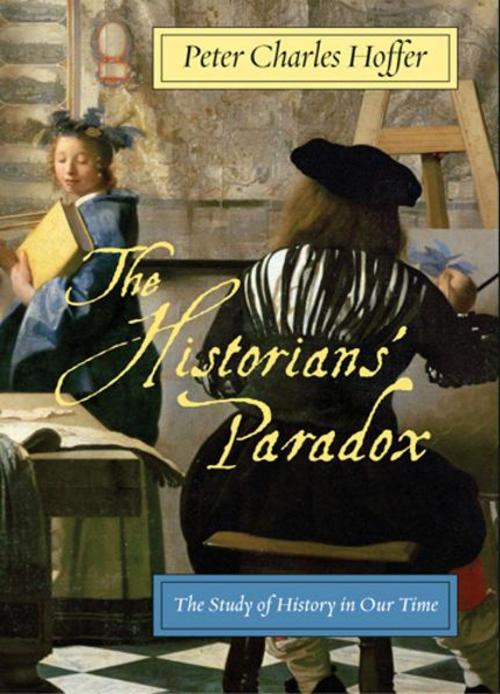| Author: | Peter Charles Hoffer | ISBN: | 9780814737439 |
| Publisher: | NYU Press | Publication: | November 1, 2008 |
| Imprint: | NYU Press | Language: | English |
| Author: | Peter Charles Hoffer |
| ISBN: | 9780814737439 |
| Publisher: | NYU Press |
| Publication: | November 1, 2008 |
| Imprint: | NYU Press |
| Language: | English |
How do we know what happened in the past? We cannot go back, and no amount of historical data can enable us to understand with absolute certainty what life was like “then.” It is easy to demolish the very idea of historical knowing, but it is impossible to demolish the importance of historical knowing. In an age of cable television pundits and anonymous bloggers dueling over history, the value of owning history increases at the same time as our confidence in history as a way of knowing crumbles. Historical knowledge thus presents a paradox — the more it is required, the less reliable it has become. To reconcile this paradox — that history is impossible but necessary — Peter Charles Hoffer proposes a practical, workable philosophy of history for our times, one that is robust and realistic, and that speaks to anyone who reads, writes and teaches history.
Covering a sweeping range of philosophies (from ancient history to game theory), methodological approaches to writing history, and the advantages and disadvantages of different strategies of argument, Hoffer constructs a philosophy of history that is reasonable, free of fallacy, and supported by appropriate evidence that is itself tenable.
How do we know what happened in the past? We cannot go back, and no amount of historical data can enable us to understand with absolute certainty what life was like “then.” It is easy to demolish the very idea of historical knowing, but it is impossible to demolish the importance of historical knowing. In an age of cable television pundits and anonymous bloggers dueling over history, the value of owning history increases at the same time as our confidence in history as a way of knowing crumbles. Historical knowledge thus presents a paradox — the more it is required, the less reliable it has become. To reconcile this paradox — that history is impossible but necessary — Peter Charles Hoffer proposes a practical, workable philosophy of history for our times, one that is robust and realistic, and that speaks to anyone who reads, writes and teaches history.
Covering a sweeping range of philosophies (from ancient history to game theory), methodological approaches to writing history, and the advantages and disadvantages of different strategies of argument, Hoffer constructs a philosophy of history that is reasonable, free of fallacy, and supported by appropriate evidence that is itself tenable.















